Originally published on Cervivor.
Erica Frazier Stum lost her battle with cancer on December 27, 2018. Erica is survived by her husband JR and her son Wylee.
I was first diagnosed with early stage cervical cancer in October 2012; I was only stage 1b2. I was supposed to have a surgery and be finished with cancer. It was supposed to be a one-time concern, no chemo, radiation, or additional treatment. I was supposed to be okay. Guess what? Things don’t always work out the way they are supposed to.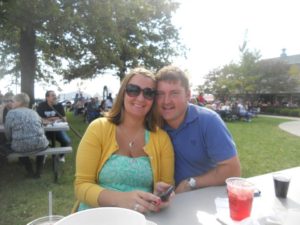
In 2014, I had my first recurrence. The doctor was optimistic we could treat the cancer and get rid of it, if we attacked it aggressively. So, I went through multiple types of chemo and external radiation. I had a PET scan which showed I was cancer free. I could go back to my life. However, that was short lived. Three short months later I had a routine follow up scan and we found that the cancer was back and had metastasized.
In 2015, when I was diagnosed with my second recurrence, it was deemed that I was incurable. I would live my life with cancer. I would live knowing that my cancer would never go away. It is something that is hard to comprehend. Honestly, I still have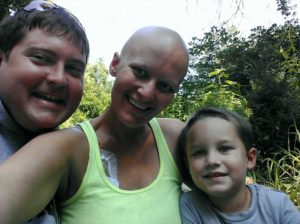 family and friends who just don’t get it. They still think that any time I go in for a checkup or scan we are going to hear that I am cancer free. It is hard to have to continue to explain to them that the cancer isn’t going away.
family and friends who just don’t get it. They still think that any time I go in for a checkup or scan we are going to hear that I am cancer free. It is hard to have to continue to explain to them that the cancer isn’t going away.
Last month I had a PET scan to see how the cancer was progressing. I shared out publicly that I was going to be having the scan. I received a lot of encouragement via social media and there were still people who were hoping for a clear scan. I was just hoping for a scan that showed the cancer had not spread into new areas. Unfortunately, what I hoped for is not what happened. My scan showed that my cancer had grown and spread. The scan showed an increased size of the mass in my pelvis (involving the rectum) and on my supraclavicular lymph node (near my clavicle). Additionally, there are new growths: one in my neck, one on my trachea, and multiple on my liver. This is not what I wanted to hear.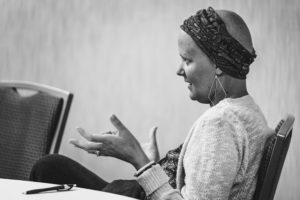
Meeting with the doctor was the next step after my PET scan. I had a few days between my scan and my appointment to sort through things mentally. When I met with the doctor we went through all of the treatments we have tried previously: surgery (twice), Carbo/Taxol/Avastin, Cistplatin, external radiation, Avastin alone, Carbo/Taxol (again), Topetecan, clinical trial immunotherapy CX-072, Carbo/Taxol (again). As you can see we have tried many options. These options are not without side effects. They are not easy. Many times, these treatments would result in me having to be placed in the hospital for multiple days due to complications, infections, and blood transfusions.
Taking all of this information into account the conversation with my doctor moved to determining what we should do next. How do we treat this incurable cancer? Well, the answer is that it might be time that we don’t treat it. We have exhausted our options. At this point the treatments could shorten my life instead of extending it. The treatments would absolutely reduce my quality of life, as proven by my many hospital stays. I am a 33-year-old mother and wife. Although I am not ready to die I know that I do not want to spend my remaining days ill in the hospital due to treatments. 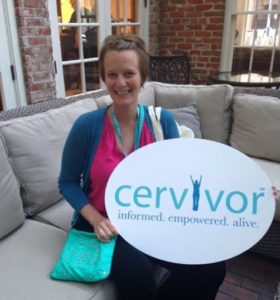
As we continued this conversation my husband brought up the idea of an immunotherapy which was recently approved for cervical cancer: Keytruda. My gynecologic oncologist said that it was an option, but it would not be without side effects. We would also need to do a biopsy to see if I was a carrier of a certain tumor marker to determine if it was a treatment which would be a viable option. I will be having my biopsy soon. This treatment isn’t something that would cure the cancer, but, maybe it could slow it down.
One of the hardest parts of the conversation with my doctor was when I asked something I always said I would never ask: “How long can I live if we don’t do treatment?” I never asked because I really didn’t want to know before, however, I felt like at this point it was a key piece of information when deciding what to do moving forward. Dr. Callahan said he liked to break down the answer into three parts: days to weeks, months, or years. We discussed that I am not at the days to weeks point, but, I am not in the years category either. Imagine that. Picture sitting in your doctor’s office as a 33-year-old wife and mother hearing that you are going to die without treatment within a year.
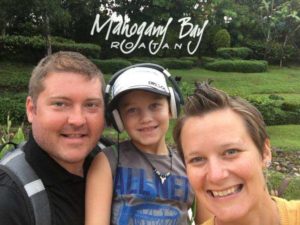
Remember that as you are sitting there you know you have exhausted your treatment options and the best way to have a fulfilling quality of life is to stop treatment.
Honestly, I fully expected to hear that the recommendation was no further treatment. I am pretty well versed in cervical cancer at this point; I have been dealing with it for over six years and have been advocating for awareness much of that time. I have spoken with specialists from around the world. Met fellow patients from around the world. I have attended funerals of friends who were in the same situation I now find myself in. I knew what was coming; I knew we were out of options. It is never easy to hear though.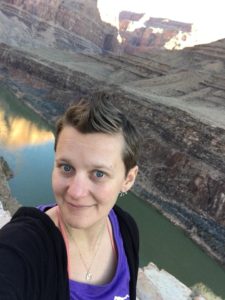
This was a hard message to share out publicly. I have had to mentally prepare myself for the responses. There are people who are going to push me to find religion. There are people who think they are experts and know how to cure cancer without standard treatment. There are also those individuals who will still think I will be okay. It is hard to break the news to people. I know people want to help but don’t know what to say. I don’t know what to ask for. It is challenging all around. As far as the time I have left goes, I am going to continue living my life until I’m gone. I hope you will join me!



